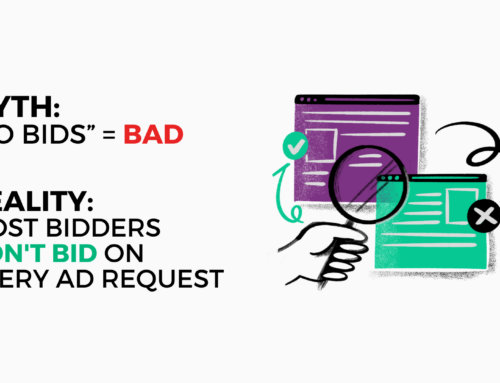Bits and Bobs from around the industry:
Freestar Hires Pub Tech Veteran Heather Carver As Its First CRO
Heather Carver has joined Freestar as its first Chief Revenue Officer (CRO), bringing her wealth of experience from the publisher side of the industry. Her return to the sell side with Freestar comes at a crucial time as publishers face significant challenges, including the deprecation of third-party cookies, loss of addressability, and shifts between DSPs and SSPs. Carver’s role as CRO will involve streamlining sales processes and enhancing the business development team.
Carver has seen the evolution of publisher technology, from the dominance of ad network optimization to the disruption caused by header bidding. She believes first-price auctions make sense for header bidding, emphasizing data-driven floor setting, while second-price auctions don’t fit well with header bidding. Regarding publishers’ investments in tech, Carver noted that companies like Freestar, positioned for outsourcing, can adapt more flexibly to changing circumstances.
The trend of publishers engaging in more direct business aligns with agencies’ limited capacity to engage with numerous publishers. Carver suggested exploring this strategy for Freestar.
DSPs and SSPs going direct to partners, like The Trade Desk’s OpenPath and Magnite’s ClearLine, offer opportunities for collaboration rather than threats. Freestar aims to partner with SSPs in this context. Carver also expressed her positive view of Prebid, highlighting its transformation into a fully formed organization, thanks to its documentation and transparency, and emphasized the importance of ongoing transparency and diverse industry voices for its success.
How Europe’s New Digital Privacy Act Will Change Big Tech Regulation
The European Union’s (EU) Digital Services Act (DSA) recently came into effect, marking a significant development in tech privacy regulations. The DSA is regarded as one of the toughest sets of regulations globally and is distinct from the previous Digital Markets Act, which focused on antitrust reform. The DSA primarily aims to protect individual user privacy and prevent the spread of harmful content and misinformation online.
Key aspects of the DSA include:
1. Transparency: Tech platforms are required to make their operations more understandable to users. This includes transparent content moderation processes, user identification for those uploading explicit content on pornography sites, and disclosure of how content recommendations function.
2. Algorithm Control: The law restricts the use of “dark patterns,” manipulative tactics employed to influence users into clicking on certain content.
3. Surveillance Advertising: The DSA prohibits surveillance advertising for minors, but a proposed ban on surveillance advertising altogether was softened due to tech industry lobbying.
The DSA applies to 19 major websites with over 45 million users within the EU. These regulations will only affect a company’s European operations, and several major tech firms, such as Meta and Google, have already announced changes to comply with the DSA.
Enforcement will involve potential fines of up to 6% of a company’s global revenue or even market bans if they fail to comply. Initially, tech companies will perform internal assessments of their compliance with the regulations, with the European Commission subsequently auditing these reports and recommending necessary actions for non-compliant firms
The Chrome Privacy Sandbox APIs are Fully Available – But How Will Users React?
Google has announced the general availability of targeting and measurement APIs within the Chrome Privacy Sandbox for the majority of Chrome users. These APIs, which will reach 100% of users in the coming months, are considered stable, with no significant changes expected before third-party cookies are deprecated. Google will introduce a mechanism to simulate third-party-cookieless traffic next quarter and deactivate third-party cookies for 1% of randomly selected Chrome users in Q1 2024. Unless the UK’s Competition and Markets Authority intervenes, third-party cookies in Chrome are set to phase out entirely by the second half of 2024. However, consumer skepticism remains regarding the Privacy Sandbox, with many looking for ways to disable its features or opt out.






